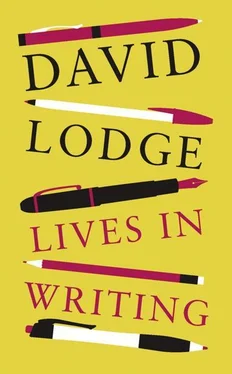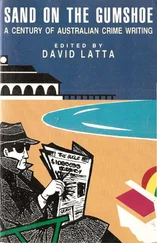The character’s promiscuous womanising and inordinate drinking, as we now know, had autobiographical sources. On his return to England from Princeton Amis boasted in a letter to Larkin: ‘I was boozing and fucking harder than at any time. . On the second count I was at it practically full-time. . you have to take what you can get when you can get it, you sam.’ (This substitution of ‘sam’ for ‘see’ was part of the private language in which they communicated.) He was writing One Fat Englishman when he met Elizabeth Jane Howard in 1962. Hilly soon discovered the affair, and accompanied Kingsley on a pre-arranged trip to Italy and Yugoslavia in an unhappy mood. When he fell asleep on the beach one day she wrote on his exposed back in lipstick: ‘1 FAT ENGLISHMAN — I FUCK ANYTHING’. (A photograph of this vengeful graffito was reproduced in Eric Jacobs’s biography.) Jane read the novel in manuscript as he was finishing it in the summer of 1963, and recalled later: ‘The awfulness of Roger Micheldene really shocked me. Apart from it being funny, it was so horrible.’ They were enjoying a working holiday in Spain at the time, and she evidently did not suspect that Amis was projecting an extreme version of the man he might turn into.
Although, as the 1962 photo shows, Kingsley was not really fat at that time, he became so later, and as gluttonous as Roger Micheldene. But whereas for Roger this is an appetite that competes for priority with the sexual (at one point, having picked up a girl at a bring-your-own-picnic, he worries about ‘the problem of retaining contact with Suzanne without giving her anything to eat’), for Kingsley, according to Martin in Experience , it displaced sex after his marriage to Jane ended: ‘getting fat was more like a project, grimly inaugurated on the day Jane left him in the winter of 1980. . a complex symptom, repressive, self-isolating. It cancelled him out sexually.’ It is clear from the biographical record that Jane left Amis for much the same reasons as Helene finally rejects Roger (not before time, the reader may think) in One Fat Englishman.
The parallels are ideological as well as personal. One Fat Englishman was written on the cusp of Amis’s movement from left to right, written almost exactly halfway between the Fabian pamphlet of 1957 in which he declared his allegiance to the Labour Party, and the 1967 essay ‘Why Lucky Jim Turned Right’ which announced his conversion to conservatism. Many of his prejudices were anticipated by Roger Micheldene, but in the novel they have an ambivalent import. It is as if Kingsley Amis, conscious in the early 1960s of the way his values and opinions were changing, and himself half-appalled by the process, projected them into a fictional character he could simultaneously identify with and invite the reader to condemn. In a curious and interesting way Roger is similarly divided about himself. ‘Why are you so awful?’ Helene asks him at a moment of post-coital candour. ‘Yes, I used to ask myself that quite a lot,’ he replies. ‘Not so much of late however.’ She finds this honesty disarming, which is exactly the effect he calculated — but it is not just calculation.
Roger is really full of self-hatred — it is the source of the vitriolic anger he directs at almost everything and everybody in the world around him — and it is hard to disagree with the judgement of the American Catholic priest, Father Colgate, absurd figure though he is: ‘You are in acute spiritual pain.’ That Roger is a Roman Catholic of an idiosyncratic kind, who addresses God familiarly in prayer between breaking as many commandments as possible, is one of the ways in which Amis distanced himself from his anti-hero — but not so far as it might seem. Roger’s rejection of Father Colgate’s counsel is a theological harangue that anticipates Amis’s remark to Yevtushenko in 1962 about hating God: ‘Has it never occurred to you that we’re bound to God by ties of fear and anger and resentment as well as love? And do you know what despair is like?’
We take leave of Roger weeping tears he is unable to explain as his ship slides out of New York harbour, and resolving to lift his mood by surveying the shipboard totty. ‘Something in him was less than enthusiastic about this course of action but he resolved to ignore it. Better a bastard than a bloody fool, he told it.’ Father Colgate would call that maxim ‘Obstinacy in Sin’, while Jim Dixon would have turned it the other way round. One Fat Englishman is certainly a much less comfortable read than Lucky Jim , but no longer seems as inferior to it as I once thought. To write a novel entirely from the point of view of a totally unsympathetic character is a very daring and difficult undertaking, but Amis manages to bring it off by making Roger’s transgressive awfulness the engine of anarchic comedy. The reader’s inclination to recoil in disgust is invariably checked by an irresistible impulse to laugh, though the laughter is always uneasy.
In an obituary of him I said that Kingsley Amis’s vision was in its way as bleak as Samuel Beckett’s, but cushioned and concealed by the conventions of the well-made novel. I should have inserted a rider, ‘from One Fat Englishman onwards’. With that qualification I stick to the comparison, much as it would have surprised and annoyed Kingsley Amis.
Postscript
New light was thrown on the relationship between Kingsley Amis and Philip Larkin by the latter’s remarkable correspondence with Monica Jones over some forty years, discovered after her death and not published until 2010 ( Letters to Monica , ed. Anthony Thwaite). When Larkin received the final revised typescript of Lucky Jim , the response he reported to her was generous and enthusiastic:
I must say that Lucky Jim is now, to my mind, one of the funniest books I’ve ever read, at least I think so. Only a printed copy can settle the question finally. But I don’t think anything can stop it being a howling success; it seems to me so entirely original that my own suggestions really pass unnoticed, as they were for the most part concerned with structure and plot. I don’t myself think anyone has been funny in this way before, and that even if he never writes anything else it will remain as a landmark.
After Lucky Jim was the howling success he predicted, the tone of Larkin’s references to Amis changed noticeably. On 15 February 1955 he tells Monica:
Kingsley never writes. I shouldn’t be surprised if he were fed up with me, in a shoulder-shrugging sort of way: I am of him, except as you say ‘the dog is so very comical.’ I was interested to hear that the book [Amis’s second novel, That Uncertain Feeling , just completed] had gone to Gollancz — oh please God, make them return it, with a suggestion he ‘rewrites certain passages’! Nothing would please me more. And I refuse to believe he can write a book on his own — at least a good one. Still, we’ll see. In a sense he has behaved more consistently than I have: I sought his company because it gave me such a wonderful sense of relief — I’ve always wanted this ‘fourth form friend’ with whom I can pretend that things are not as they are — and pretended I was like him. Now I don’t feel like pretending any longer, and I suppose it looks like ‘turning against him’, although it’s not really. . Probably he has been mistaken, to himself, about me.
When Larkin reads a favourable review of That Uncertain Feeling in the New Statesman just before obtaining a copy, he writes to Monica, on 19 August 1955: ‘What the NS&N terms a brilliantly funny opening scene in a public library is, I am prepared to swear, taken from one of my Wellington letters. I remember writing it: “a sample encounter with a borrower.”. . It irritates me powerfully to see this stuff, small though it may be, used for his credit & advantage.’ A couple of days later, having read the novel, he admits, ‘I was piling it on in the first scene, really, though there are spills & spars of a dialogue of mine in it. I contribute about 4 other gags in the course of the book, but they’ve mostly been adapted.’ Some years later (11 October 1960) he reports congratulating Robert Conquest ‘on replacing me as chief unpaid unacknowledged gagman to Amis Inc.’.
Читать дальше












